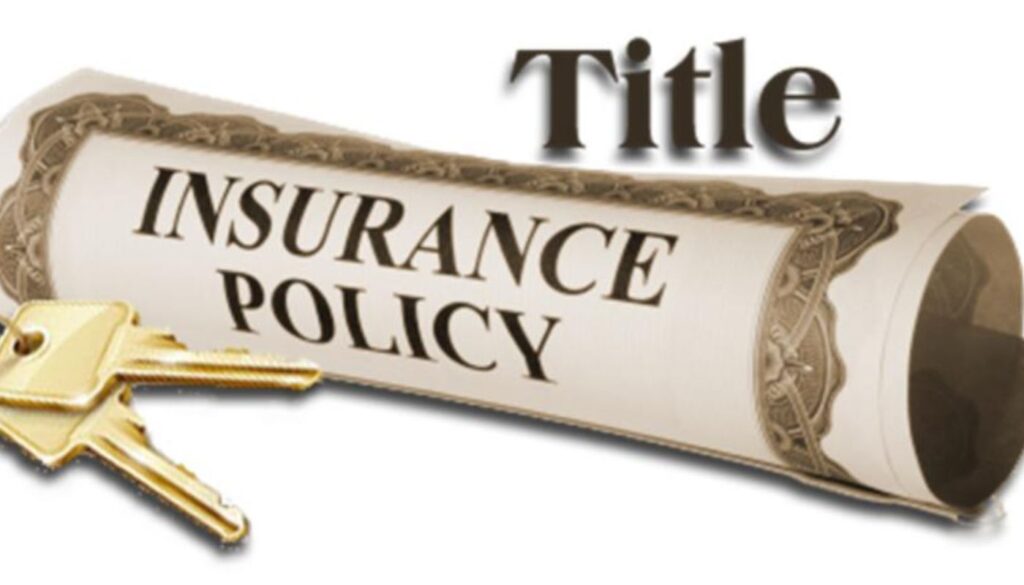When you buy a home, the last thing you want is to face legal challenges over the property’s ownership down the road. Unfortunately, this nightmare scenario happens more often than you might think due to potential title defects. That’s where title insurance comes in – it protects your ownership rights and financial interests in the property.
Title insurance is a type of indemnity insurance that covers any loss of ownership interest in a property due to legal defects or issues with the property title. It insures against claims or defects that existed before you purchased the home. Some common issues title insurance covers include:
- Undiscovered heirs claiming ownership
- Forged deeds or invalid deeds
- Liens or encumbrances on the property
- Improperly recorded documents
- Errors in public records
- Unknown title defects like contested ownership, easements, or boundary disputes
Without title insurance, you could face expensive legal battles and potentially lose your home or equity if a serious title problem arises. So for most homebuyers, purchasing a title insurance policy offers valuable protection and peace of mind.
How Title Insurance Works
Before issuing a title insurance policy, the title company conducts an extensive search of public records to identify any existing title defects or potential claims against the property’s ownership. This search examines deeds, court records, tax records, and other municipal documents.
However, even the most thorough title search may not uncover all past issues. Some problems, like forged documents or unknown heirs, could eventually surface and threaten your property rights.
That’s where title insurance kicks in. If an issue arises after you’ve purchased the home, the title insurance company will:
- Defend your ownership rights in court
- Cover legal fees
- Reimburse you up to the coverage amount if you lose your claim
The coverage amount is usually the purchase price of the home. So if someone surfaces with a legitimate claim to ownership, the title insurer covers your losses up to what you originally paid.
Types of Title Insurance Policies

When going through the closing process, you’ll encounter two main types of title insurance policies:
- Lender’s Policy
- Owner’s Policy
Lender’s Policy
A lender’s policy, also known as a loan policy, is required by virtually all mortgage lenders. This type of title insurance protects the lender’s financial interests in the property.
If there’s an issue with the title after closing, the lender is covered for the outstanding mortgage loan amount. That way, the lender recoups their money even if there’s a problem with ownership.
Lender’s policies provide no coverage for the homeowner/buyer. They only protect the lending institution.
Owner’s Policy
An owner’s policy or owner’s title insurance directly protects the homebuyer/owner. It insures your equity and ownership rights in the property, covering legal fees and financial losses up to the purchase price.
Unlike a lender’s policy, an owner’s title insurance policy is optional – but highly recommended by most real estate professionals and legal experts. We’ll discuss in more depth later whether you truly need an owner’s policy.
Typically, the lender’s policy and owner’s policy are issued together as a bundled package. The owner’s policy then provides extended coverage beyond what the lender’s policy offers.
Read As: Is Optical Coherence Tomography Covered by Insurance?
Do You Really Need an Owner’s Title Policy?
Given the extra upfront cost, some homebuyers wonder if they can skip the owner’s title insurance and just rely on the lender’s policy. In most cases, real estate experts strongly advise against this for a few key reasons:
Risks of Not Having Owner’s Title Insurance
- You’d have to pay out-of-pocket if someone stakes a claim against your ownership after closing
- You’d face all legal fees/hassles of defending your ownership rights in court
- You could potentially lose your home and all the equity/value you’ve built up
- The risks often outweigh the one-time insurance premium cost
However, there are a few limited scenarios where an owner’s title policy may not be as essential:
- You’re buying a brand new construction home where the builder is providing title insurance
- The home is being purchased entirely in cash with no mortgage lender involved
For the vast majority of home purchases, though, most experts recommend ponying up for the owner’s title insurance coverage. It offers valuable protection against potential title defects that could derail your financial interests in the property.
Cost of Title Insurance

Homebuyers often underestimate the full closing costs associated with buying a home, including title insurance fees. Understanding the typical costs can help you budget properly.
While prices vary based on the insurance provider, policy amount, and location, here are some average title insurance cost estimates:
Lender’s Title Policy
- Typically costs around 0.5% – 1% of the total mortgage loan amount
- For a $300,000 loan amount, expect to pay $1,500 – $3,000
Owner’s Title Policy
- Often heavily discounted when combined with the lender’s policy
- May cost around $500 – $1,000 more than just the lender’s coverage alone
However, the specific title insurance costs depend on several variable factors:
- Home Value: Policies for higher-priced homes cost more
- Location: Prices fluctuate based on state regulations and regional norms
- Mortgage Amount: Higher mortgage loans mean higher lender’s policy premiums
- Insurance Company: Rates can vary between different title insurers
To get a more accurate projection, consider using an online closing costs calculator that factors in your specific home purchase details and location.
It’s important to note that title insurance premiums are paid one-time only at closing. The coverage then continues as long as you own the property, with no recurring policy premiums due annually.
Read Also As: NAVIGATING THE FUTURE OF WDROYO INSURANCE: TRENDS SHAPING THE INDUSTRY
Tips for Buying Title Insurance
While the title company issuing your policy is often recommended by your real estate agent or lender, you don’t have to use their suggested provider. Here are some tips for shopping around smartly when purchasing title insurance:
- Get quotes from multiple title insurers: Rates can vary significantly between companies, so compare pricing.
- Look for bundled packages: Some companies offer discounts when bundling owner’s coverage, escrow services, and other closing fees.
- Consider service quality: While price matters, also evaluate the insurer’s reputation, claims practices, and customer reviews.
- Avoid excessive fees/endorsements: Some insurers load on unnecessary fees or “optional” endorsements that just inflate the bottom line.
- Leverage your network: Ask friends, family, or your agent for referrals to trusted, affordable title insurers.
By weighing both costs and service factors, you can select a reputable title insurance company that offers the best overall value.
When to Make a Title Claim
If issues like boundary disputes, unknown liens, or ownership challenges arise after your home purchase, you’ll need to file a claim with your title insurer. But there are some key timelines to be aware of:
Knowledge Dates Most title insurance policies come with specified “knowledge dates” that limit how long after closing a claim can be filed. For instance:
- Lender’s Policy: Claims accepted for the life of the loan
- Owner’s Policy: Claims accepted indefinitely after closing, with no expiration
So for an owner’s policy, any title defects discovered years or decades later would still be eligible for coverage.
Filing a Claim To start the claims process, contact your title insurance company and provide details on the issue at hand. They’ll require documentation like:
- A copy of your title insurance policy
- Details on the nature of the ownership dispute or defect
- Documentation supporting your claim (deeds, property records, etc.)
From there, the title insurer handles all legal aspects – retaining attorneys, investigating the claim’s validity, defending your interests in court if needed, and reimbursing you up to the coverage amount if the claim is successful.
While it’s rare to face serious title issues after closing, having an owner’s title insurance policy provides essential protection against legitimate claims that could deprive you of your home and financial interests. Staying aware of coverage limits and claims procedures ensures a smooth process if problems arise.
Conclusion
In the excitement of purchasing a home, many buyers overlook the value of title insurance protection – only to face nightmarish scenarios years down the road. Spending a relatively small sum at closing for an owner’s title insurance policy could save you from immense financial loss and legal headaches.
Here’s a quick recap on why title insurance matters:
- Title defects like undiscovered heirs, improper filings, or ownership disputes can arise unexpectedly
- Lender’s policies only protect the mortgage company’s interests, not your ownership rights
- Owner’s policies insure your equity/investment up to the full purchase price
- Claims happen more often than people assume due to mistakes, fraud, or unknown issues
- Legal fees from defending ownership in court can quickly add up without

Marathi author Anju Mary has made a mark in the literary world with her innovative storytelling and deep passion for reading. Her unique narrative style and creative approach offer readers a distinctive and enriching experience, solidifying her reputation as a prominent writer.











